Understanding Calendar Sync
OneCal Calendar Sync allows users to synchronize multiple iCloud, Outlook or Google Calendars in real-time, automatically.

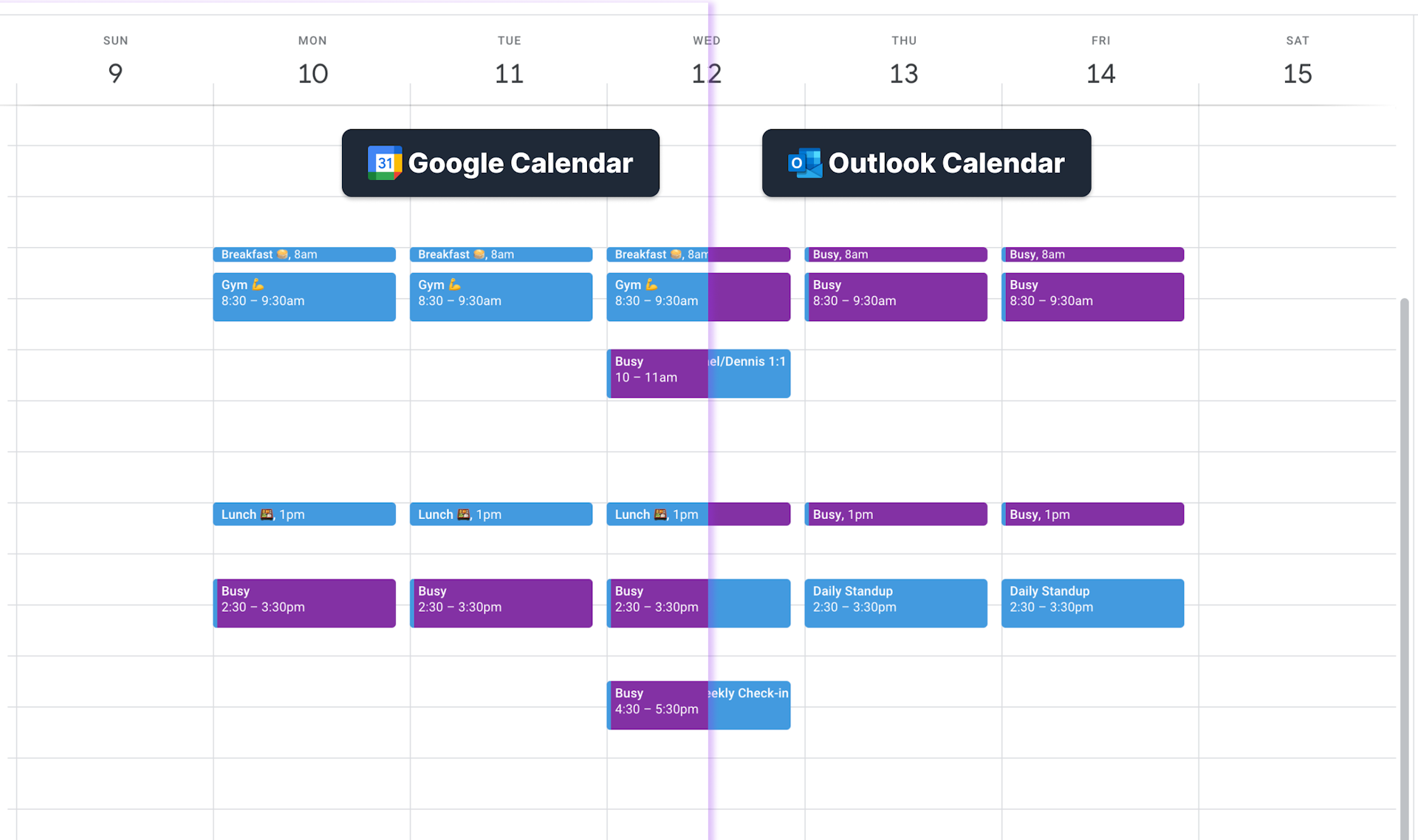
Good To Know
You do NOT need to set up Calendar Sync in order to use OneCal's Booking Links or Calendar View features.
Supported Providers
- Google Calendar
- Microsoft Outlook
- iCloud Calendar
Good To Know
OneCal is approved by Google and Microsoft and uses Official APIs to access your calendars. We act as a proxy and don't store or analyze any of the calendar data or events.
Sync Directions
OneCal supports one-way and multi-way syncs.
One-Way Sync Direction
The one-way sync allows you to sync one calendar to another, or to multiple calendars. The sync would look like this:
- Calendar A -> Calendar B
- Calendar A -> Calendar B, Calendar C, Calendar D (and more calendars...)
Here is what the UI looks like:

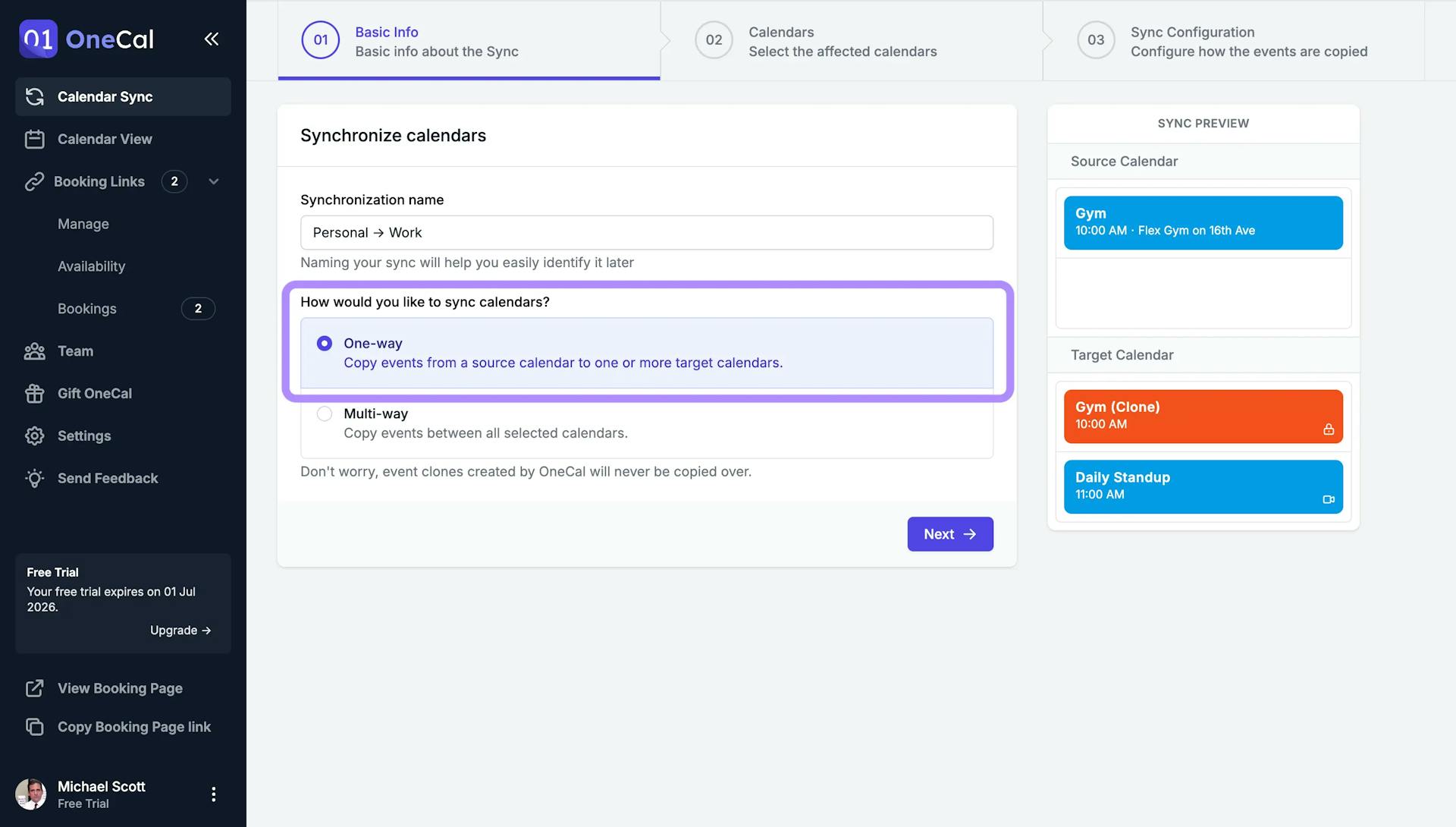

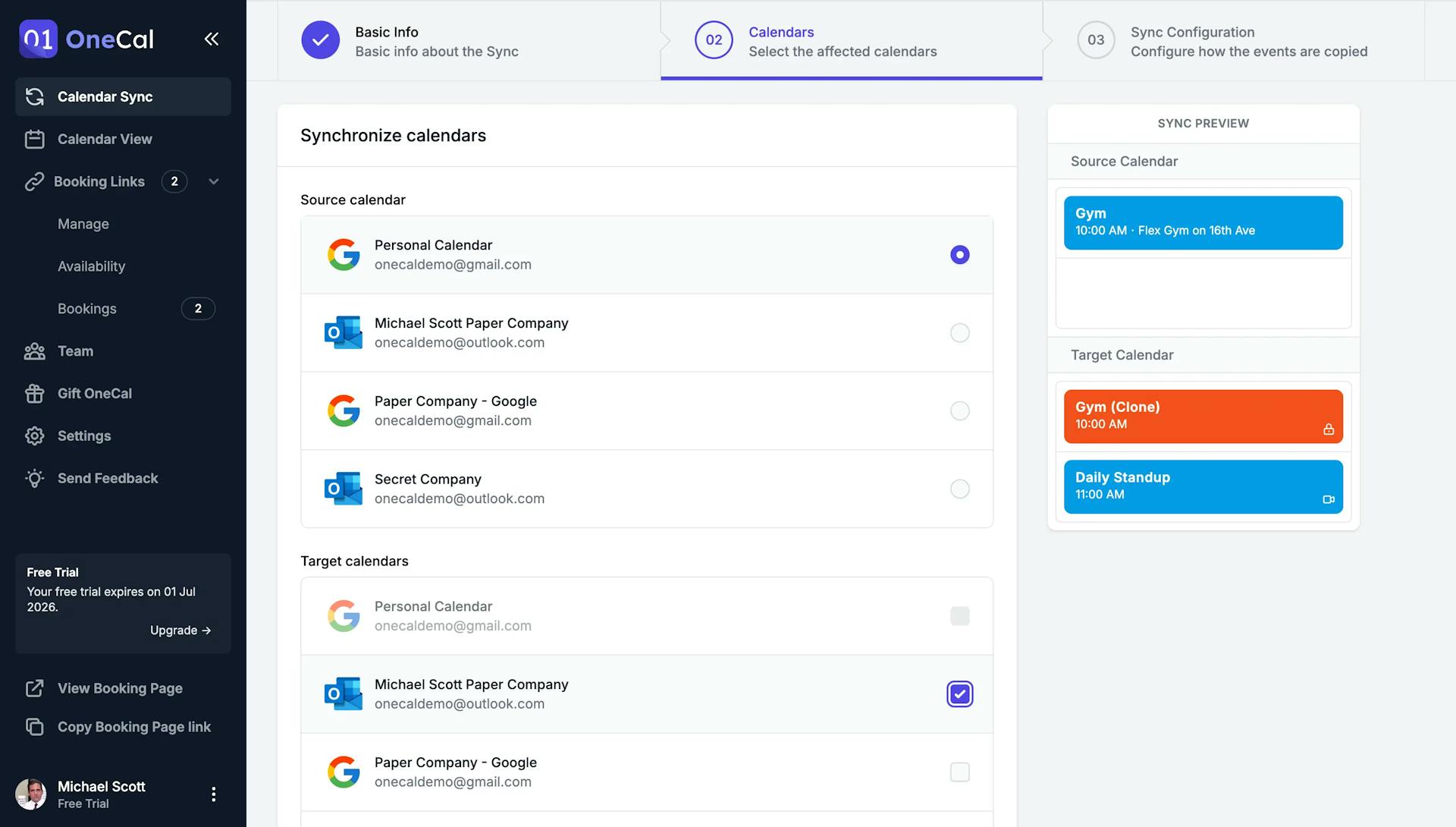
Example 1:
You have a work calendar and a personal calendar. You can:
- Create a one-way sync to sync Personal -> Work, by removing all event information, and just blocking the time in your Work calendar for personal events.
- Create another one-way sync to sync Work -> Personal, by sending all event information to your personal calendar.
Example 2:
You have two work calendars and a personal calendar. You can:
- Create a one-way sync to sync Personal -> Work1, Work2, by removing all event information, and just blocking the time in your Work calendars for personal events.
- Create a one-way sync to sync Work1 -> Personal, by sending all Work1 information to your personal calendar.
- Create a one-way sync to sync Work2 -> Personal, by sending all Work2 information to your personal calendar.
This configuration allows you to block time on your work calendars for personal events, and block time on your personal calendar for work events.
Your privacy is intact when blocking time on your work calendars for personal events, as all event details are stripped.
Multi-Way Sync Direction
The multi-way sync allows to sync of multiple calendars under the same sync configuration.
Here is what the UI looks like:

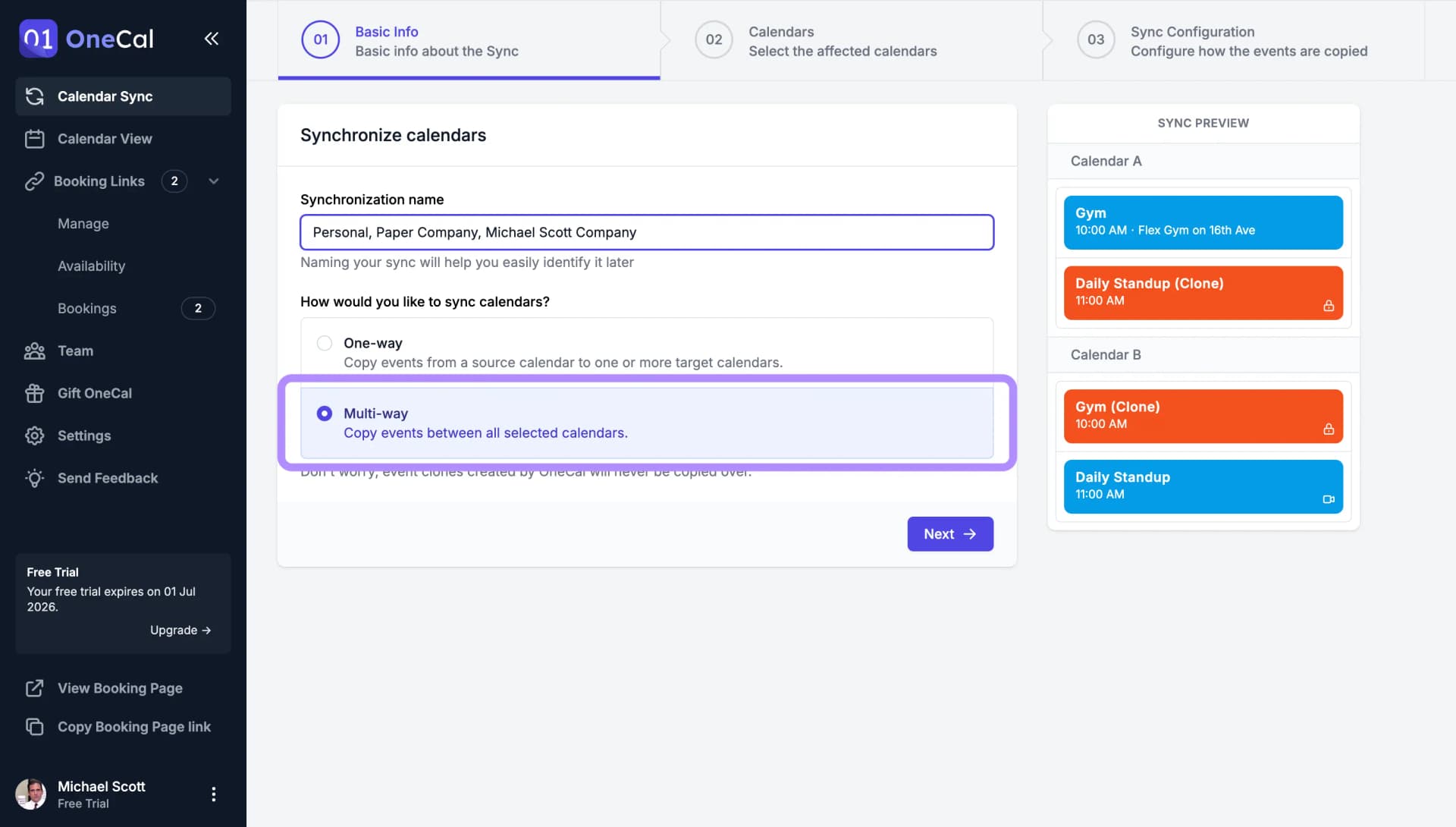

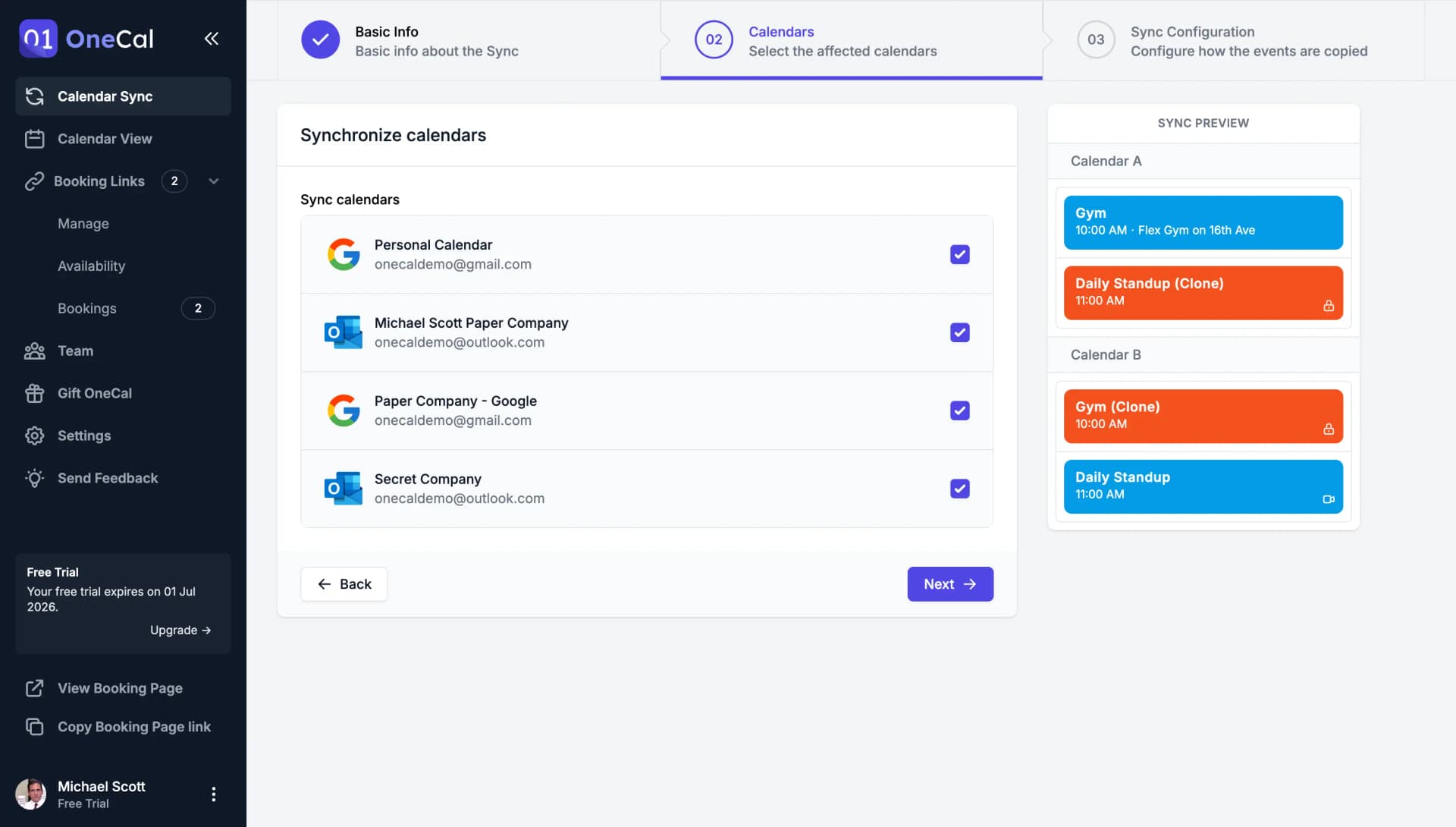
Example:
You have 3 work calendars and a personal calendar. You want to sync all calendars by showing 'Busy' for cloned events. You could create a multi-way sync and select the calendars you want to sync. OneCal handles the rest.
Sync Configuration
Both One-way and Multi-way calendar syncs have the same sync configuration.

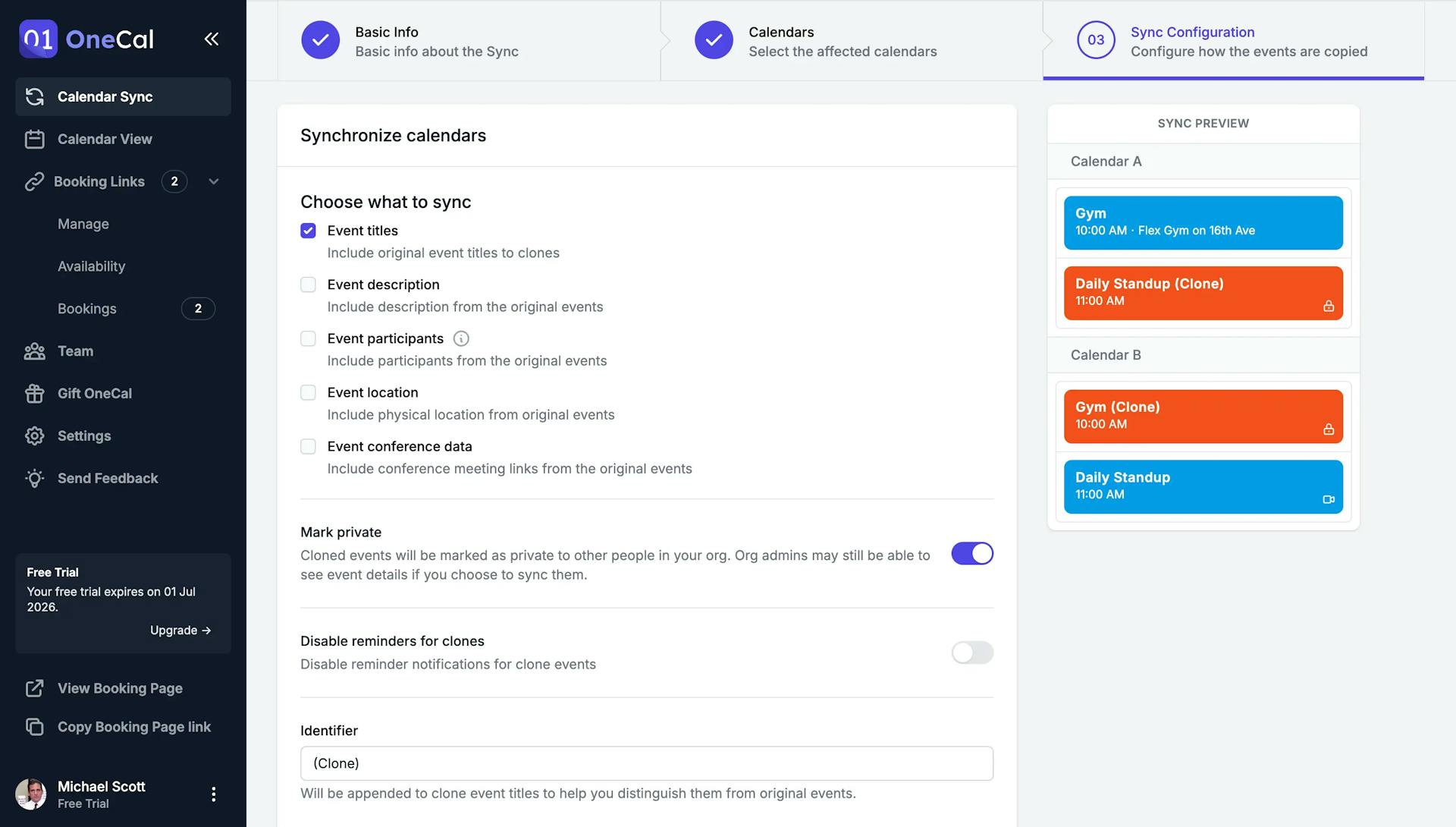
Sync Configuration Settings
Sync Event titles: Include original event titles to clones or choose to completely hide them and show a custom message.
Sync Event Description: Include a description from the original events.
Sync Event participants Include participants from the original events. Participants will be included in the event's description to prevent them from getting an invitation to the cloned event.
Sync Event location Include physical location from original events.
Sync Event conference data: Include conference meeting links from the original events.
Mark cloned events as private: Cloned events will be marked as private to other people in your org.
Disable reminders for clones: Disable reminder notifications for clone events, so you don't get multiple notifications for the same event across multiple calendars.
Tag your clones: Will be appended to clone event titles to help you distinguish them from original events. If you choose to hide the event names, This will appear as the title of your cloned events.
Assign colors to cloned events: Choose to give cloned events a custom color so you can easily distinguish them from real events in your calendar.
Exclude events from syncing by your response (RSVP): Going, Maybe, Unanswered, No" Only events containing one of the selected responses will be synchronized.
Exclude events from syncing by their color: Events colored with the selected color won't be synchronised.
Sync Free Events: Events marked as free will be synchronized.
How Often Do the Syncs Run?
The Calendar Sync is real-time and automatic. As soon as a change happens in your source calendar(s), OneCal will sync all the target calendars.